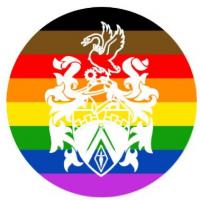Electronic and Electrical Engineering BEng
Our Electronic and Electrical Engineering BEng degree is a modern course that has been developed to equip you with the knowledge and skills needed to design electronic and electrical systems for the next generation.
The first year is common to all our engineering students. You will share modules and this gives you the opportunity to learn more about different branches of engineering science. You'll also gain a better understanding of the connections between various engineering fields, its multi interdisciplinary nature and how you can choose your future employment.
You will be introduced to electronic engineering and gain deep knowledge of electronics and electrical systems. You’ll learn about electronic systems, and electrical engineering and sustainability, and then progress to advanced electronics. In your final year, you can choose specialist subjects like control systems, embedded systems and intelligent systems.
Access is available to modern technical facilities including computer, electronics, and power and control laboratories where you’ll work on your experiments. The latest industry standard engineering software packages are available for you to use in dedicated computer clusters.
Brunel's BEng electronic and electrical engineering course is accredited by the Institution of Engineering and Technology (IET). This professional engineering institution ensures that your engineering degree meets the academic requirement to qualify as a professional engineer. This accredited BEng degree in electronic and electrical engineering can be studied full-time over three years, or four years with a placement year. The BEng degree meets the educational requirement to become an Incorporated Engineer (IEng). You may wish to transfer to the MEng route of study at the end of your second year, subject to meeting the progression requirement. The MEng degree fully meets the educational requirement to become a Chartered Engineer (CEng) and involves a further year of academic study.
We encourage the placement year option. This time in industry helps you to further prepare for the world of work and you’ll have a year’s worth of invaluable professional experience when you graduate. If you decide to go on an engineering placement year, you will have the opportunity to work in an engineering or technology company.
The BEng course in electronic and electrical engineering also offers pathways where you can specialise in either artificial intelligence, communication systems, computer systems, or energy systems.
Intakes
- Sep
Application Processing Time in Days: 30
Minimum English Language Requirements
| English Level Description | IELTS (1.0 -9.0) | TOEFL IBT (0-120) | TOEFL CBT (0-300) | PTE (10-90) | |
|---|---|---|---|---|---|
| Expert | 9 | 120 | 297-300 | 86-90 | |
| Very Good | 8.5 | 115-119 | 280-293 | 83-86 | |
| Very Good | 8 | 110-114 | 270-280 | 79-83 | |
| Good | 7.5 | 102-109 | 253-267 | 73-79 | |
| Good | 7 | 94-101 | 240-253 | 65-73 | |
| Competent | 6.5 | 79-93 | 213-233 | 58-65 | |
| Competent | 6 | 60-78 | 170-210 | 50-58 | |
| Modest | 5.5 | 46-59 | 133-210 | 43-50 | |
| Modest | 5 | 35-45 | 107-133 | 36-43 | |
| Limited | 4 | 32-34 | 97-103 | 30-36 | |
| Extremely Limited | < 4 | < 31 | < 93 | < 30 |
Job Opportunity Potential
Making effective applications
Preparing for interviews
Make the most of your careers service, throughout your degree and beyond
Where could your degree take you?
Build your career while studying and gain an insight into the range of paths open to you
Skills Awards and Programmes
Build the skills employers look for with Ready, Brunel+, BSIP, and professional mentoring
Moving on as a graduate
We're still here for you after you finish your degree - up to 3 years after graduation
PSW Opportunity
2 Years PSW is applicable after the course completing (Bachelors level or above)
Admission Requirement / Eligibility Criteria
CBSE, CISCE, Tamil Nadu & Maharastra Boards - Pass Standard XII with 72% from 5 subjects. All other Boards - Pass Standard XII with 82% overall.
If you require a Tier 4 visa to study in the UK, you must prove knowledge of the English language so that we can issue you a Certificate of Acceptance for Study (CAS). To do this, you will need an IELTS for UKVI or Trinity SELT test pass gained from a test centre approved by UK Visas and Immigration (UKVI) and on the Secure English Language Testing (SELT) list. This must have been taken and passed within two years from the date the CAS is made.
English language requirements
IELTS: 6 (min 5.5 in all areas)
Pearson: 51 (51 in all sub scores)
BrunELT: 60% (min 55% in all areas)
TOEFL: 79 (min R18, L17, S20, W17)
- Course Code: H600
- Course Type: Full Time
- Course Level: Bachelors/UG Degree
- Duration: 03 Year
-
Total Tuition Fee:
59565 GBP
Annual Cost of Living: 12006 GBP
Application Fee: N/A
Similar Programs
- Mechanical Engineering MEng at Brunel University London
- Mechanical Engineering BEng at Brunel University London
- Games Design BA at Brunel University London
- Games Design and Creative Writing BA at Brunel University London
- Flood and Coastal Engineering BSc at Brunel University London
- Electronic and Electrical Engineering MEng at Brunel University London

